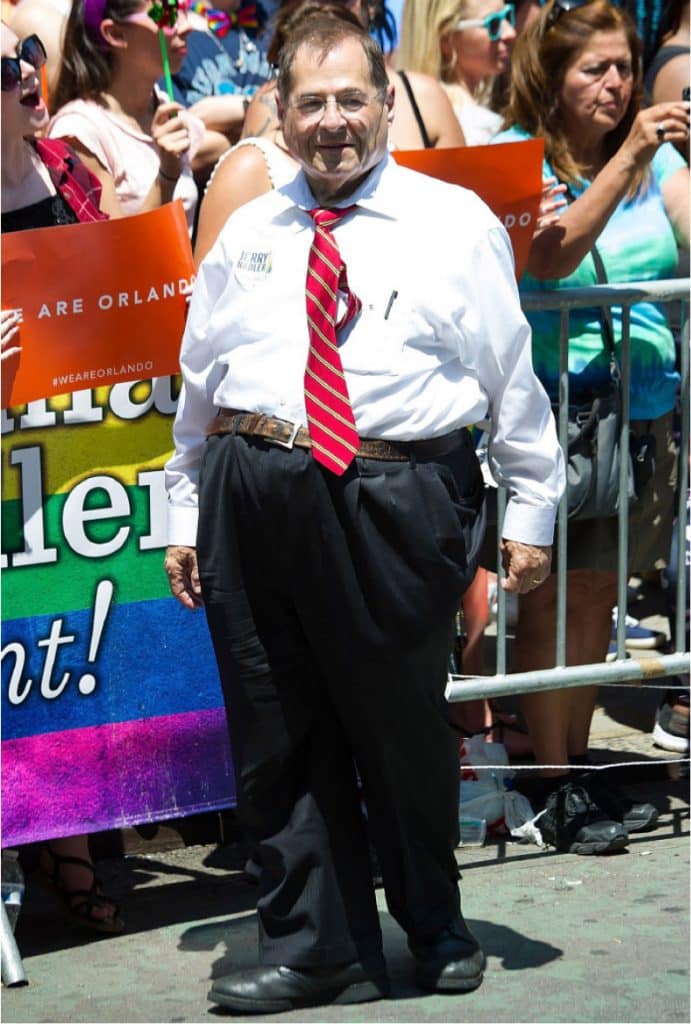When the Democrats took control of the House in the mid-term elections, I thought they might swiftly pass articles of impeachment against President Trump. They had the votes to do it, but their leaders — Nancy Pelosi and Chuck Schumer in particular — generally opposed impeachment as being too divisive and possibly playing into the hands of Trump, who thrives on the notion that he is unfairly under attack by his enemies.
Then Trump announced he would refuse to work with the Democrats as long as he is under investigation by Congress and talk of impeachment returned to the headlines.
When the Mueller report was released in April, it appeared to exonerate Trump on the charge of colluding with the Russians. This must have been a great disappointment to Hillary Clinton and her devotees, who continue to believe she was robbed of the presidency (she won the popular vote, but lost in the Electoral College). They may have a legitimate gripe: the Russians were using the Internet and social media to target critical swing districts with anti-Clinton messages. But they were doing this before Trump was the Republican nominee. For whatever reason, Putin and his oligarchs didn’t seem to think a Clinton presidency was in Russia’s best interest.
After Trump became the Republican nominee, the Russians began targeting swing districts with pro-Trump messages as well. But they probably would have done the same for any Republican challenger. Some members of Trump’s campaign may have been talking with the Russians, and, sensing an opportunity, encouraged such activity. But Mueller could find no direct evidence that this was done by or with the knowledge of Trump. But he did leave the door open to possible obstruction of justice by Trump.
But Mueller was not so clear about obstruction of justice, stating recently, “If we had had confidence that he clearly did not commit a crime we would have said so.” Obstruction of justice can be a difficult charge to prove. There is no question Trump does not welcome public scrutiny and investigation into his personal life and financial dealings. But at what point does complaining or the lack of cooperation become obstruction?
If Trump were to be impeached by Congress, it would not mean he would be removed from office. Impeachment is similar to being indicted by a grand jury: it means only the president has been formally charged with wrongdoing and must stand trial. That trial would take place in the Senate and be presided over by the Chief Justice of the Supreme Court. Conviction would require a two-thirds vote (that is, 67 of the 100 senators). Given that the senate is presently composed of 53 Republicans, 45 Democrats and 2 independents who generally vote with the Democrats, that is a very high bar to hurdle. Conviction would require 20 Republican senators to vote to remove Trump from office.
History is not on the side of those calling for Trump’s impeachment. Articles of impeachment have been introduced in Congress on numerous occasions. In fact, every president since 1980 has faced impeachment charges. But only three times in history have they been passed in the House: in 1868, against Andrew Johnson, who was tried and acquitted over his post-Civil War reconstruction policy; in 1974, Richard Nixon resigned rather than stand trial in the Senate over the Watergate scandal; and in 1988, Bill Clinton was tried and acquitted of lying about his affair with a White House intern. The bottom line is the Senate has never voted to remove a president through the impeachment process.
Those calling for Trump’s impeachment — mostly on the far left — are engaged in little more than political grandstanding. They believe, perhaps correctly, that if articles were introduced in Congress this fall, they would pass the Democrat-controlled house and set the stage for a Senate trial starting in early 2020. Imagine the daily drama, along with commentary by media pundits, that America would be exposed to leading up to the 2020 presidential election.
How long might such a spectacle drag on? Articles of impeachment against Bill Clinton passed the house in October of 1998 and he wasn’t acquitted until February, 1999. I expect an impeachment trial for President Trump would take much longer, although much depends on the participants. Trump is likely to fight impeachment every step of the way, while his antagonists are unlikely to turn off the media spotlight. With the 2020 party conventions approaching —the Democrats hold theirs in July and the Republican convention is in August — voters will be left in a quandary. If Trump is convicted, he can never again hold public office. So he can’t just reverse the outcome of the trial by being re-elected. This virtually guarantees the outcome will be determined by politics rather than the evidence presented.
Meanwhile, the nation faces a slew of problems and issues that could come to a head next year and demand our government’s attention: the crisis on our southern border, trade wars that could plunge us into a global recession, tensions in the Middle East and Latin America, a nuclear-armed nut-job in North Korea, crumbling infrastructure, drug abuse and crime and our soaring federal debt. This is not the time for a partisan ploy that will accomplish little except to drive us further apart. Perhaps the goal of Russia’s election meddling is simply to sow the seeds of political discord and chaos rather than to favor one candidate over the other. If that is the case, the Russians have succeeded.
For the good of the country, the Democrats should forget about impeachment and instead make the 2020 presidential election about finding solutions to the many issues and problems our nation faces. Most people are fed up with the divisiveness and rancor of our politics today. They want leaders, not dividers. Our Constitution is designed to diffuse power, not concentrate it in the hands of one political group or another. Compromise is not a dirty word; it is the way one gets things done in a democracy. Our political leaders should focus on bringing our diverse nation together to meet our challenges, not on tearing us apart.















Comments are closed.